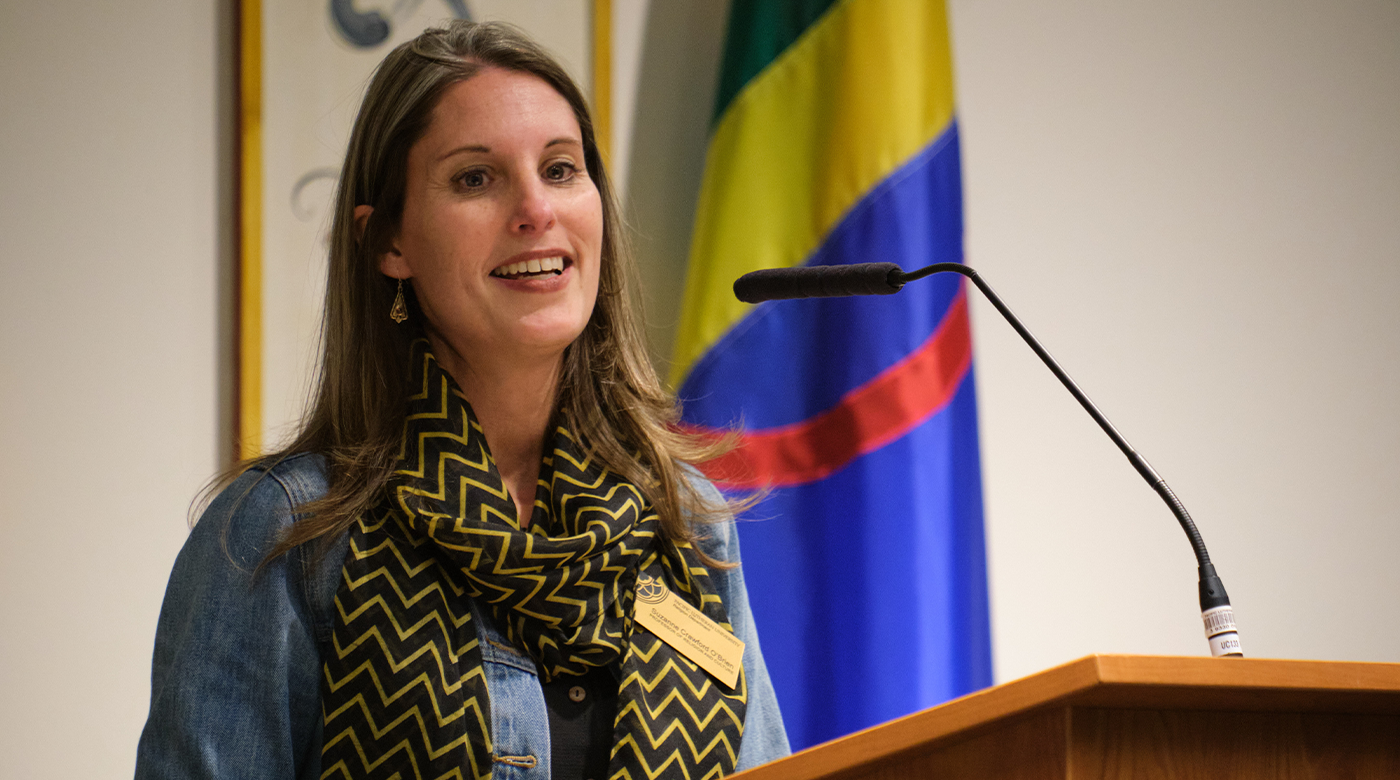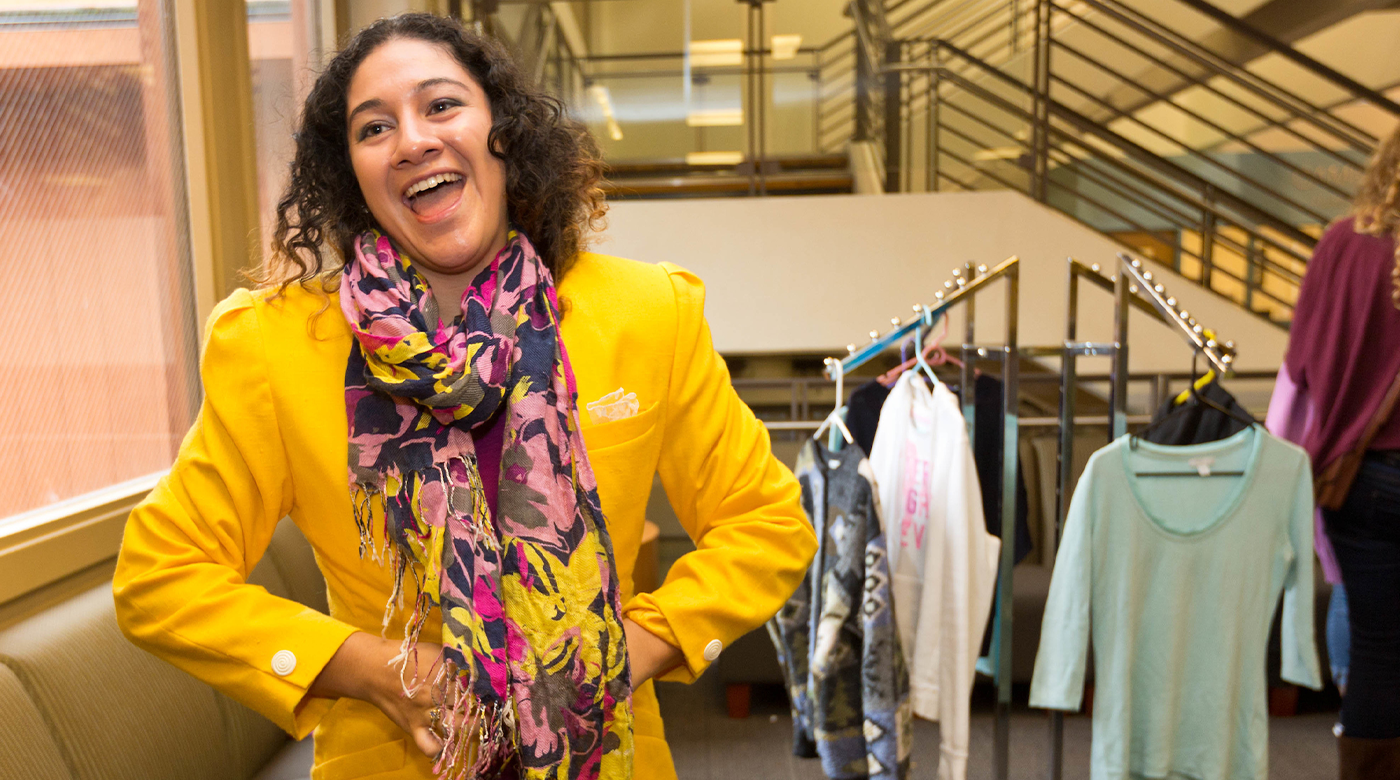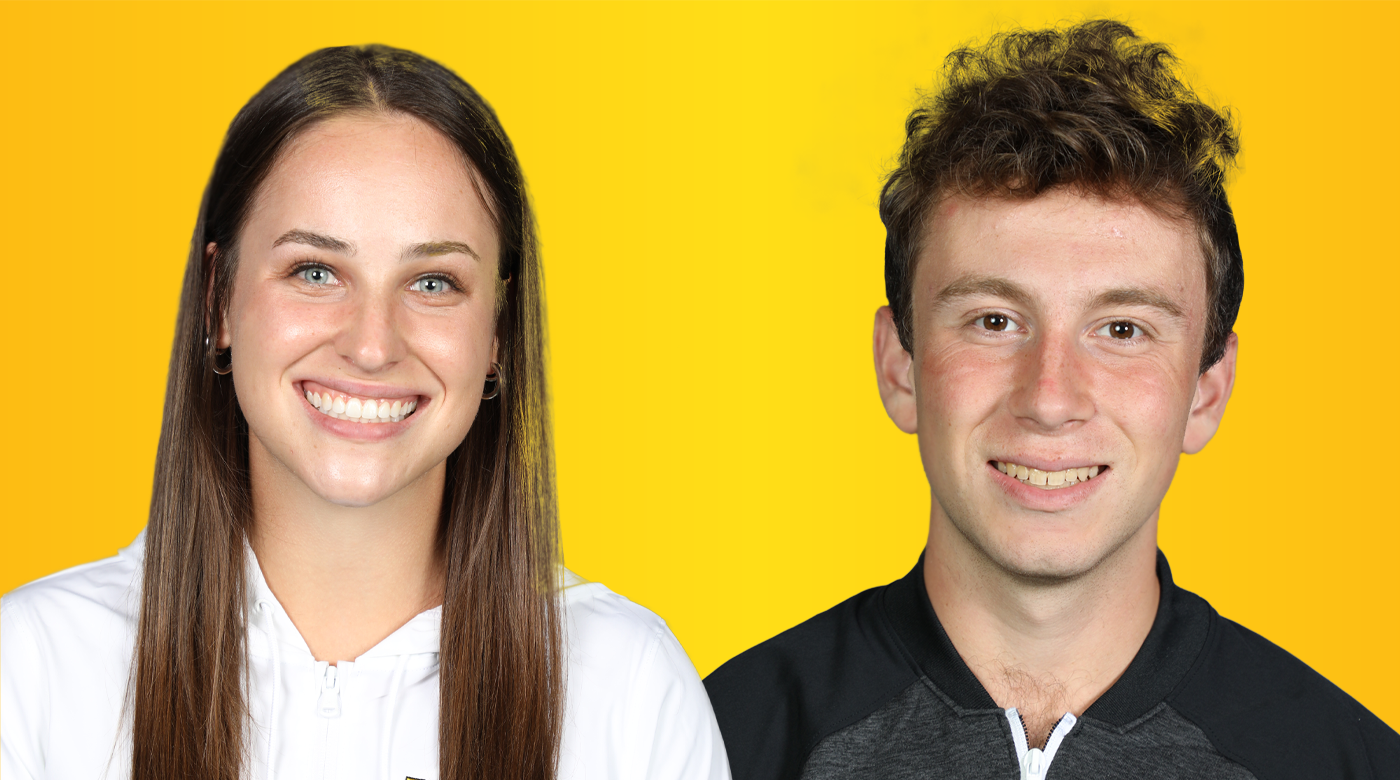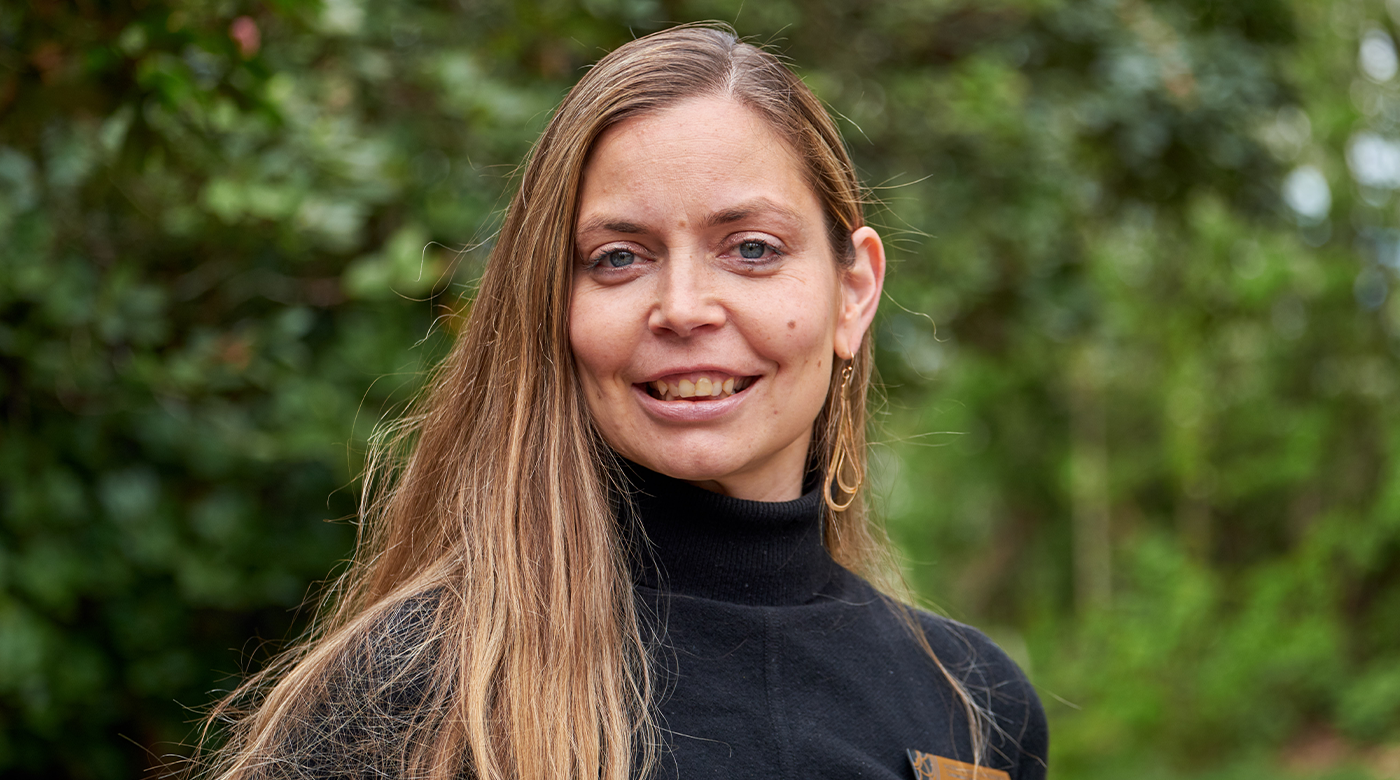BJUG DAY: Q&A with Dr. Suzanne Crawford O’Brien

By Veronice Craker
Marketing & Communications
At PLU, we’re building up the next generation of Lutes — ones who will be called to lead us into an uncertain future. On Bjug Day you joined together in ensuring students are fully equipped to answer that call. Despite navigating a global pandemic, we have continued to offer experiential learning opportunities to students. Thanks to your support, we can continue and enhance innovative academic programs that create internships and research opportunities for all students.
Meet Dr. Suzanne Crawford O’Brien, the interim dean of Interdisciplinary Programs and professor of Religion and Culture. She shares with us how the pandemic has changed the college classroom and how PLU’s professors are challenging our students to prepare them for the future.
How are academic programs leaning on each other to build successful curriculums?
We’re engaging in a lot of creative conversations this year, thinking about how programs can join together to offer more integrated curricula, where we can collaborate on senior capstone projects, and how we can make it more possible for students to double-major. Many of our degrees complement work that students are doing elsewhere, and we want to do what we can to make that holistic, integrative learning a possibility.
How has the pandemic and social unrest impacted our academic programs?
The most immediate impact of the pandemic was of course the shift to online learning. In Spring 2020, it meant an abrupt shift to virtual classes, and that was challenging for everyone. By Fall 2020, however, faculty had been able to spend the summer learning about virtual classrooms and crafting their courses and felt much more comfortable with the online format. The pandemic also had a big impact on our experiential learning programs. Most of our programs require study abroad, study away, or internships. Students studying abroad had to come home, and study abroad programs were canceled or postponed. We had to get creative about providing our students virtual internship experiences—and thankfully we were able to do that for a lot of our students. Being online definitely wasn’t the same, but students were still able to have meaningful experiences.
Social unrest and the Black Lives Matter protests most definitely impacted our programs, giving us all a sense of urgency. It was easier than ever to see why teaching and learning about diversity, justice, and sustainability really matter, why things like Global Studies, Environmental Studies, and Gender, Sexuality and Race Studies are really at the heart of what PLU is all about, and what our mission calls us to do. Again, we missed the ability to be together physically—it was a moment when we all wanted to do something, and not being able to be on campus and in our physical community was hard, even while it inspired us to get creative. The events of the past year really motivated both students and faculty, and we were able to bring that motivation into the classroom through applied projects. Faculty were able to bring these issues into discussions of literature, history, philosophy, ethics, and environmental equity.
How have faculty, staff and students responded to that challenge?
I’m continually amazed at how my colleagues pivoted so quickly to online classrooms, how they spent the entire summer learning very different kinds of pedagogies and technologies. It was a huge lift, and I was so impressed by the good work they did. And our students! This was a really tough year—many of our students were caring for family, working extra hours, attending classes online, or dealing with isolation. It was tough. I was so proud of how they pushed through, created spaces for online community, kept in touch in safe ways, and kept moving forward.
What are the benefits of having interdisciplinary programs?
Interdisciplinary programs are where students integrate different ways of understanding, different disciplines, and different perspectives. It’s not just that they use multiple academic methods, but that they learn the tools and methodologies for integrating these different ways of learning. What this does is provide a more holistic perspective, a more integrated and systematic understanding. Interdisciplinary programs also tend to be applied, that is, they’re explicitly about solving pressing problems. PLU has an often-repeated commitment to Diversity, Justice, and Sustainability. We aren’t a values-neutral institution, but a place that is intentional about our commitment to these core concerns. And that sets us apart. And Interdisciplinary programs are all about these values–diversity, justice, and sustainability are at the core of what we do, in Global Studies; Chinese Studies; Gender, Sexuality, and Race Studies; Environmental Studies; Innovation Studies; Holocaust and Genocide Studies; Native American and Indigenous Studies. These are spaces where we gain understanding about cultural diversity, we learn about the origins of injustice and what we can do to make the world a more just, equitable, and sustainable place. Students come away with a broader understanding and a keen sense of how they can join in the work.
What class or program that you know of highlights these benefits?
ENVT 350 is a really stellar course that exemplifies the interdisciplinary approach to learning. This course has been taught for decades–it’s been evolving all along, but what has remained the same is the focus on the Clover Creek Watershed. As a result, we now have many years worth of data about Clover Creek, water quality, and environmental impacts. It’s a really significant contribution to our community. So the course includes geology, biology, and chemistry to do that work. And it’s also truly interdisciplinary, including units on philosophy, literature, ethics, and Native American studies. Students integrate these various fields–taught by guest instructors from around campus and our community–into their understanding of what this watershed means in a really broad sense.
How is this course shaping our students?
This course exemplifies a very PLU approach to learning: it’s applied, it’s engaged with the community, it’s taking a holistic perspective, and it’s truly interdisciplinary. It’s not only environmental science but environmental studies—which means that it includes that broader picture, bringing the liberal arts into conversation with that applied field research. It helps our students become systems thinkers, to understand that a single issue or problem can—and must—be seen from a variety of perspectives. It challenges students to understand the complexity inherent in human relationships with places, and how we need to work with all the living communities of that place—plant and animal and mineral as well as human—in our restoration efforts.





